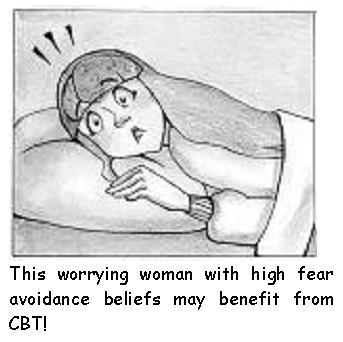The 1st CBT Review Says it?s Good The 2nd CBT Review Says...it?s So So
Reference:Morley S, Eccleston C, Williams A. Systematic review and meta-analysis of randomized controlled trials of cognitive behaviour therapy and behaviour therapy for chronic pain in adults, excluding headache. Pain. 1999 Mar;80(1-2):1-13.
Eccleston C, Williams AC, Morley S. Psychological therapies for the management of chronic pain (excluding headache) in adults. Cochrane Database Syst Rev. 2009 Apr 15;(2):CD007407.
This 1999 systematic review evaluated the value of cognitive-behavioural treatments (CBT).
When compared to the waiting list controls, CBT was associated with significant clinical benefits.
When compared to alternative active treatments, CBT produced significant reductions in pain experience, and reductions in behavioural expression of pain.
This 1999 systematic review concludes that active psychological treatments based on the principle of CBT may be effective.
The 2009 Cochrane Database systematic review evaluated the effectiveness of CBT by extracting data from 40 RCTs.
The basic conclusion was that CBT has small positive effects for pain, disability and mood.
Personal Comment: It is surprising that the benefits of CBT are so small in RCTs! This is likely due to the fact that most patients simply do not require any CBT, they need physical interventions such as manual therapy and muscular training.
However, there is a small population of patients that really do need CBT (as they have significant psychosocial issues). If only these patients could be recognized prior to a study, then only they would be included in the studies and the results would likely be better!
Posted on: October 10, 2010
Categories: Relevant Physical Therapy Articles


